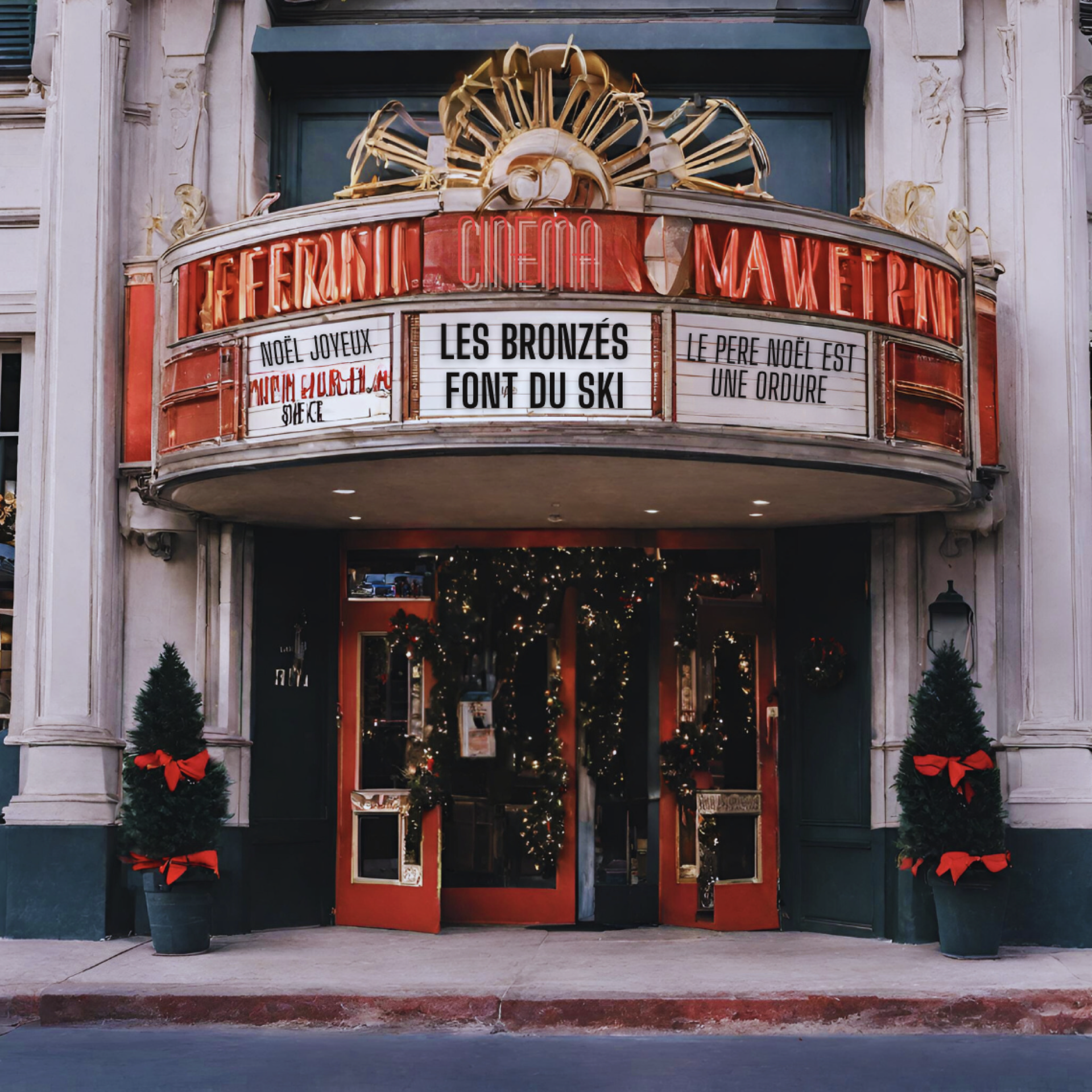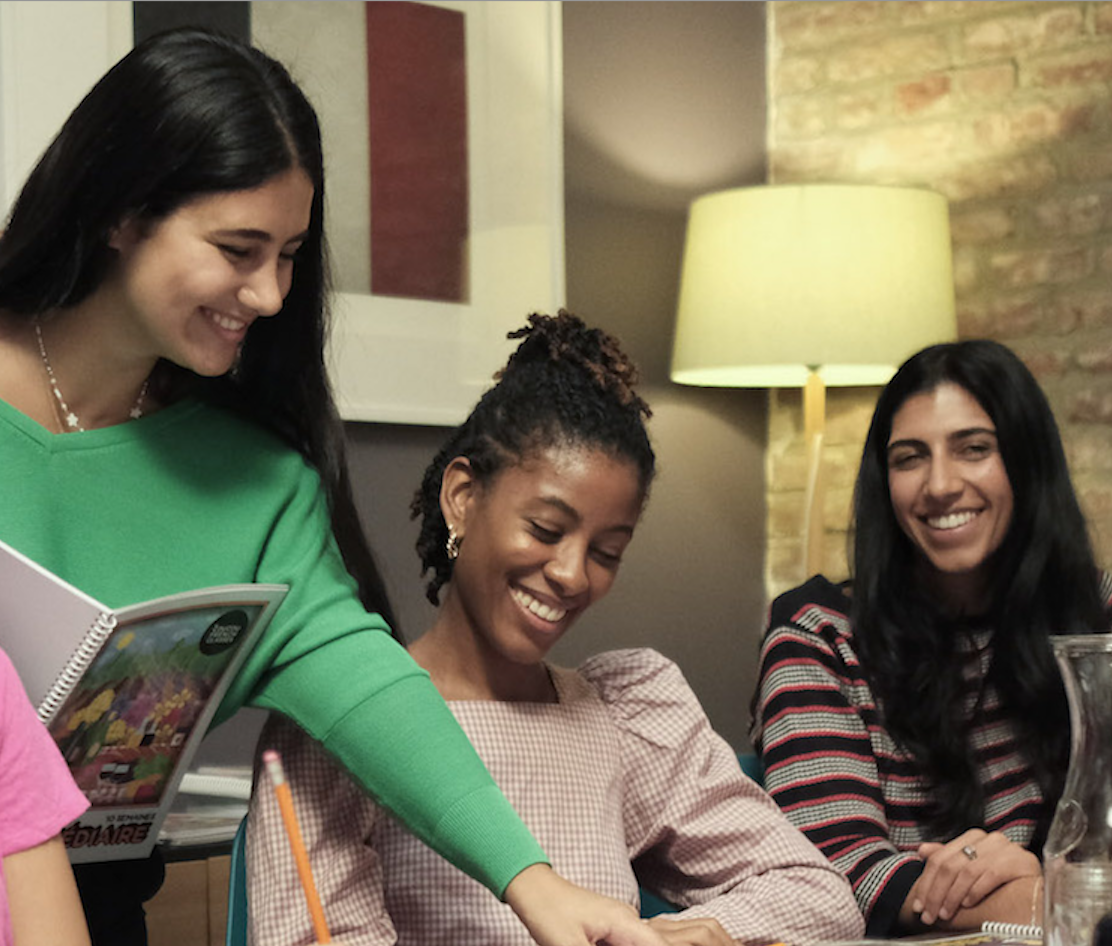
Have you ever hung out with a group of French speakers and wondered why you can’t understand half the expressions they use? Or have you watched a French movie and said to yourself, “This sounds nothing like the French I learned in high school”? You’re not the only French learner who feels confused! French slang–if you haven’t figured this out yet–is incredibly rich. Every generation in France has its own set of slang words: from “C’est chouette !” to “C’est swag !” to “C’est ouf !” (Just three–of many–ways to say something’s cool.)
Today, we’re taking a closer look at one particular type of French slang that resembles pig Latin: verlan. You might have heard verlan words like “teuf” or “meuf”–especially if you’ve seen French films like the cult classic La Haine. But what exactly is verlan? How did it become so popular? Is it still cool or do you sound weird if you use it? By the end of this article, you’ll be a verlan expert!
By Sophia Millman
The Rise of Verlan

According to French scholar Jean-Paul Colin, the origins of verlan can be found in the 17th century. Rather than call the royal family “les Bourbons,” some people in 17th-century France jokingly referred to them as “les Bonbours.” By the 19th century, French criminals used verlan as a secret language. But verlan didn’t catch on everywhere in France until the late 20th century. In the 1960s and ‘70s, many North African immigrants began moving to France, where they quickly developed their own form of slang. As the suburban areas in which they lived–called les banlieues–became denser, the slang used there spread to France’s major cities. This slang became known as “verlan”–an inverted version of the word “l’envers” (backwards).
By 1989, verlan had become so ubiquitous that French teachers in the US were writing about it. “As a Fulbright teaching assistant in Paris,” wrote Natalie J. Lefkowitz in 1989, “I was alarmed to discover that I often did not understand the language that my students were speaking around me.” Thirteen years later, even the New York Times was running articles about verlan. In his 2002 Times article “Backward Runs French,” Alexander Stille wrote, “Verlan has spread from the peripheral housing projects of France’s poorest immigrants […] and gained widespread popularity among young people across France. It has seeped into film dialogue, advertising campaigns, French rap and hip-hop music.”
- Practice your French: Watch this hilarious 1986 video below of teenagers trying to explain what verlan is to a reporter.
How Verlan Works
If you’re a linguist–or if you understand what “Open Syllable Type CV” means–you might want to read this technical article about verlan. If you have no clue what an open syllable is, now worries, verlan is actually pretty easy to understand.
Here’s how it works: you take any word and you flip its syllables. Let’s first imagine doing this in English. Take the word MARKET. Syllable 1: MAR. Syllable 2: KET. Now, you’re going to reverse the syllables. Syllable 1: KET. Syllable 2: MAR. Your new word is KETMAR. That’s the inverse–or verlan–of market.
Now let’s do this in French. Take the word BIZARRE. Syllable 1: BI. Syllable 2: ZARRE. Reverse these and you get ZARRE-BI. There you go. The French change the spelling slightly and write “ZARBI,” pronounced zarbee, which rhymes with barbie. “C’est trop zarbi” means “That’s so weird.” You can do this with any short word. If the word is one syllable, like FOU, simply write it backwards: OUF. “C’est ouf” means “That’s crazy.”
- Practice your French: Watch the short clip above that explains verlan and gives you more examples of popular verlan words.
What Does Verlan Sound Like?
Ok, you might be thinking, this makes sense, but wouldn’t French sound totally insane if you reversed every word? The answer to your question is yes! The famous French musician Jacques Dutronc once sung a song using verlan. He changed the sentence “J’avais la cervelle qui faisait des vagues” (My brain was making waves) to “J’avais la vellecer qui zaifeu des gueva.” And guess what? The song was not a big hit.

Not every word in French can be said in verlan, and even people who love verlan use it sparingly. If a French word has three syllables or more, it’s usually not turned into verlan. If you’re trying to figure out how to verlanize a word (and yes, we just made the word “verlanize” up), the one thing you have to be careful about is pronunciation. Take the verb tomber, which means “to fall.” This word contains two syllables: TOM / BER. The tricky thing is that -OM is a nasal sound and the -ER sound in French makes an AY sound. So your word sounds like TOHN / BAY and becomes BAY / TOHN. The French decided to spell that “béton.” Listen to the famous song “Laisse béton” here!
- Practice your French: Check out this 2005 TV clip about how “young people” speak. Say the words highlighted out loud as you watch to practice your phonetics!
Verlan in Popular Culture
We’ve already mentioned Renaud’s iconic 1978 song “Laisse béton,” but verlan in French music doesn’t stop there! French rappers like NTM and Assassin helped make Verlan cool in the 1990s. There are also tons of French films that contain verlan–notably the 1955 classic Du rififi chez les hommes and the comic thriller Les Ripoux (My New Partner).
But is verlan still… cool? Around 2012, French newspapers began running articles announcing the end of verlan. According to French linguist Alain Rey, verlan has fallen out of favor among young people today. “The creativity that gave rise to popular words like keuf (cop) and meuf (woman) has disappeared,” he explains. Once-popular words like “céfran” (French) and “reum” (mother) sound outdated to French speakers’ ears.
As Rey points out, French rappers and instagrammers rarely use verlan and young people associate verlan with their parents’ generation. Nevertheless, there are some signs that verlan could make a comeback, and certain verlan words seem to have entered French people’s vocabularies for good.
- Practice your French: Watch and read this short TF1 piece about how young people speak today. Expressions like “PLS” are must-knows!
Key Verlan Words to Know

While you should avoid using certain outdated verlan expressions like “oilpé” (naked), you can definitely still say some verlan words in everyday French conversations. Here are some of our favorites:
- chelou – Verlan for “louche,” which means “shady” or “suspicious”
- cimer – Merci backwards!
- ouf – The inverse of “fou”, which means “crazy”.
- meuf – Verlan for “woman”
- relou – The verlan term for “lourd,” which means “heavy.” It’s used figuratively to describe something or someone annoying!
- vénère – Verlan for “énervé”, which means “upset” or “annoyed”.
- pécho – Verlan for “choper” which means “to catch”. Pécho is used in romantic situations, and means to kiss or sleep with someone.





